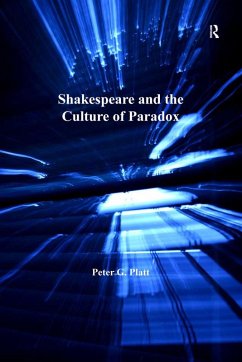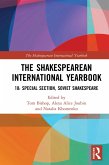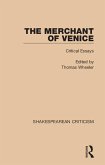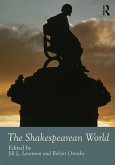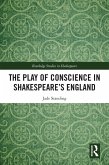Exploring Shakespeare's intellectual interest in placing both characters and audiences in a state of uncertainty, mystery, and doubt, this book interrogates the use of paradox in Shakespeare's plays and in performance. By adopting this discourse-one in which opposites can co-exist and perspectives can be altered, and one that asks accepted opinions, beliefs, and truths to be reconsidered-Shakespeare used paradox to question love, gender, knowledge, and truth from multiple perspectives. Committed to situating literature within the larger culture, Peter Platt begins by examining the Renaissance culture of paradox in both the classical and Christian traditions. He then looks at selected plays in terms of paradox, including the geographical site of Venice in Othello and The Merchant of Venice, and equity law in The Comedy of Errors, Merchant, and Measure for Measure. Platt also considers the paradoxes of theater and live performance that were central to Shakespearean drama, such as the duality of the player, the boy-actor and gender, and the play/audience relationship in the Henriad, Hamlet, As You Like It, Twelfth Night, Antony and Cleopatra, The Winter's Tale, and The Tempest. In showing that Shakespeare's plays create and are created by a culture of paradox, Platt offers an exciting and innovative investigation of Shakespeare's cognitive and affective power over his audience.
Dieser Download kann aus rechtlichen Gründen nur mit Rechnungsadresse in A, B, BG, CY, CZ, D, DK, EW, E, FIN, F, GR, HR, H, IRL, I, LT, L, LR, M, NL, PL, P, R, S, SLO, SK ausgeliefert werden.

